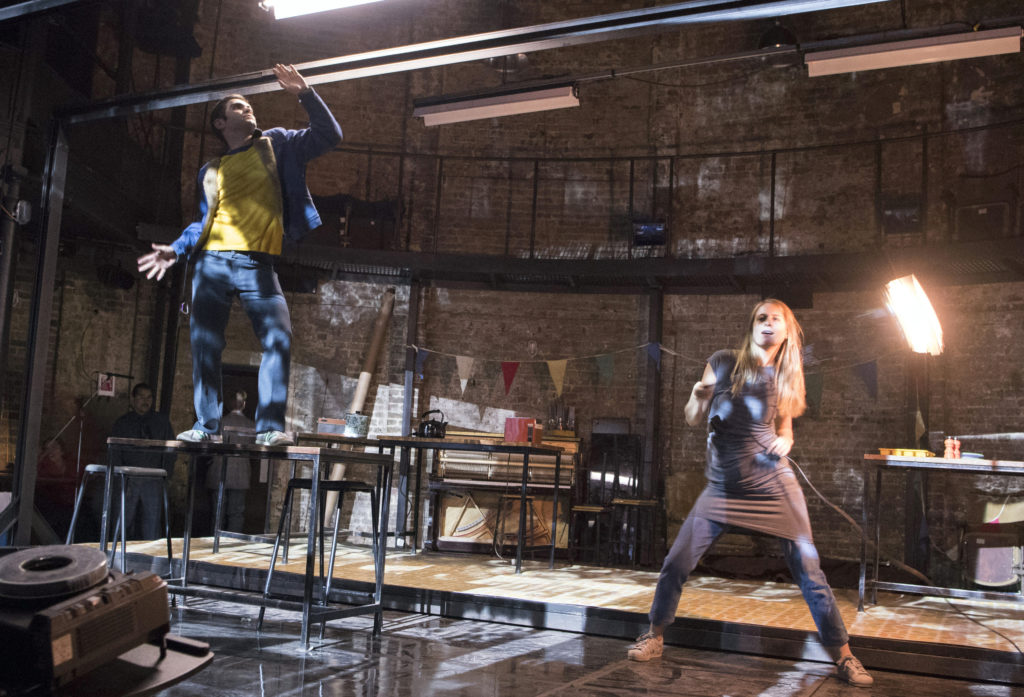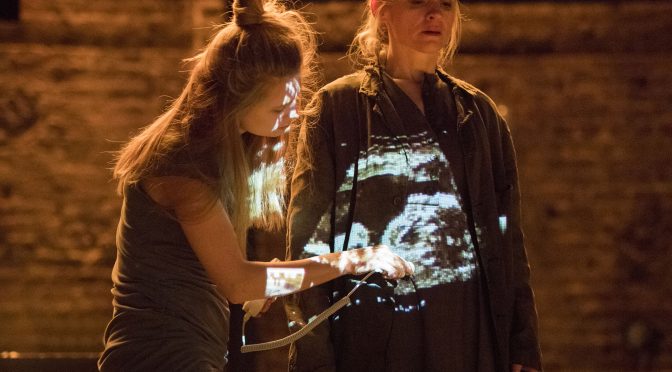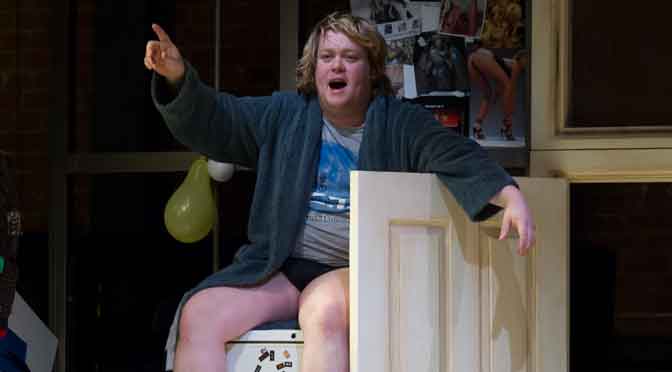Ella Hickson’s time-travelling play overflows with contemporary concerns. Scene one shows the not-so-good life of Cornish farmers in 1889. It’s followed by a trip to Tehran in 1908, Hampstead in 1970 and a couple of forays into the future. All show the consequences of oil, or the lack of, in society. Each scene is played around the dynamic of a mother called May (Anne-Marie Duff), Orlando-like over the centuries, with her daughter, Amy, who appears just conceived, aged eight, as a teen and as a middle-aged woman. You can’t doubt the play’s ambition.
The danger here is in overwhelming your audience. Hickson manages to stop her play feeling like an online search for conspiracies with the help of director Carrie Cracknell’s inventive staging and some deliciously mischievous humour. It’s a self-consciously crazy affair, with an experimental feel that has a certain charm. But there are moments of confusion. The box-of-tricks set by Vicki Mortimer has distracting elements, while repeated motifs that steer the audience are effortful. And there’s also a pop song (by Justin Bieber) – an overused trend I wish would stop.

The combination of global politics and gender studies is original and startling. Matching empire and parenthood produces some charge, not least an excoriating invective when Amy’s boyfriend (Sam Swann) is dispatched by May – the play’s best scene. But depressingly, the insights here aren’t revelatory, even if they are well delivered. Scenes set in the past don’t privilege historical accuracy, those looking to the future have silly touches; both are a little too obvious about how we live now, giving rise to a sense of naïvety. This is a young writer who sees the world getting worse and is angry about it. Fair enough. An impressive, almost intimidating energy drives the play, but it lacks control.
Oil is grim stuff. Hickson is harsh on all, not just those from the past, and the play’s themes of loneliness and narcissism, allied to the selfishness of Empire, create affecting moments. Trying to help is a confusing thing and the future will be lonely and (literally) cold. Unfortunately, cynicism overwhelms the text. It’s hard to knock a play with so many ideas, a good deal of them well executed. But it’s only Duff, seconded by Yolanda Kettle who plays her daughter over the centuries, who manages to inject some real feeling and provide a reason to see the play.
Until 26 November 2016
Photos by Richard H Smith


